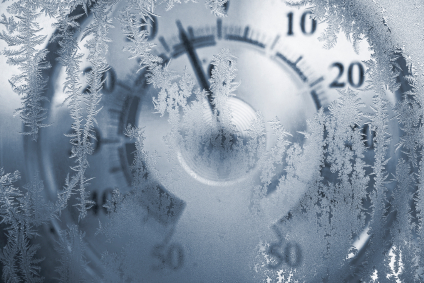Although polar vortex sounds like a storm of major proportion, it is actually a low-pressure pattern in the atmosphere near the polar regions of the earth. When a polar vortex is strong, its effects on mid-latitude areas such as the United States are minimal. However, a weakening of the vortex can result in cold air moving into these mid-latitude areas. You may remember that the temperatures in the Midwest and Northeast of the nation were unusually warm during December, 2015. However, the weakening of the vortex in the early part of 2016 has caused some recent plunges in temperatures. You may find that your furnace is operating more often during this pattern, and thoughts of high bills might cause concern over heating effectiveness. Following are some strategies for keeping your heating system operating efficiently.
Maintaining Recommended Thermostat Settings
Turning your furnace off for a period of time can create more work for it when it fires up again. It is best to implement ENERGY STAR settings to ensure that the heating load in your home is managed consistently. Use a waking setpoint of 70 degrees or lower, which will also be your evening setting. During the day, drop your setting by 8 degrees, and do the same at night. If you don’t have a programmable thermostat, this is an excellent time to install one for optimum heating effectiveness.
Monitoring Filters
A clogged furnace filter can reduce the efficiency of your heating system. It can also result in overheating and other problems. During times of heavy heating activity, frequent filter checks are crucial. Evaluate your filter at least once per month, but consider making this a weekly maintenance activity during harsh climate conditions.
Troubleshoot Problems Quickly
If your heating equipment malfunctions, you will want to check energy sources, thermostat settings, and your filter promptly. If you can’t identify the problem, you can review the heating repair options available from Ireland Heating & Air Conditioning. You can contact our Lake Forest office at 847-388-0108 to schedule emergency service.



